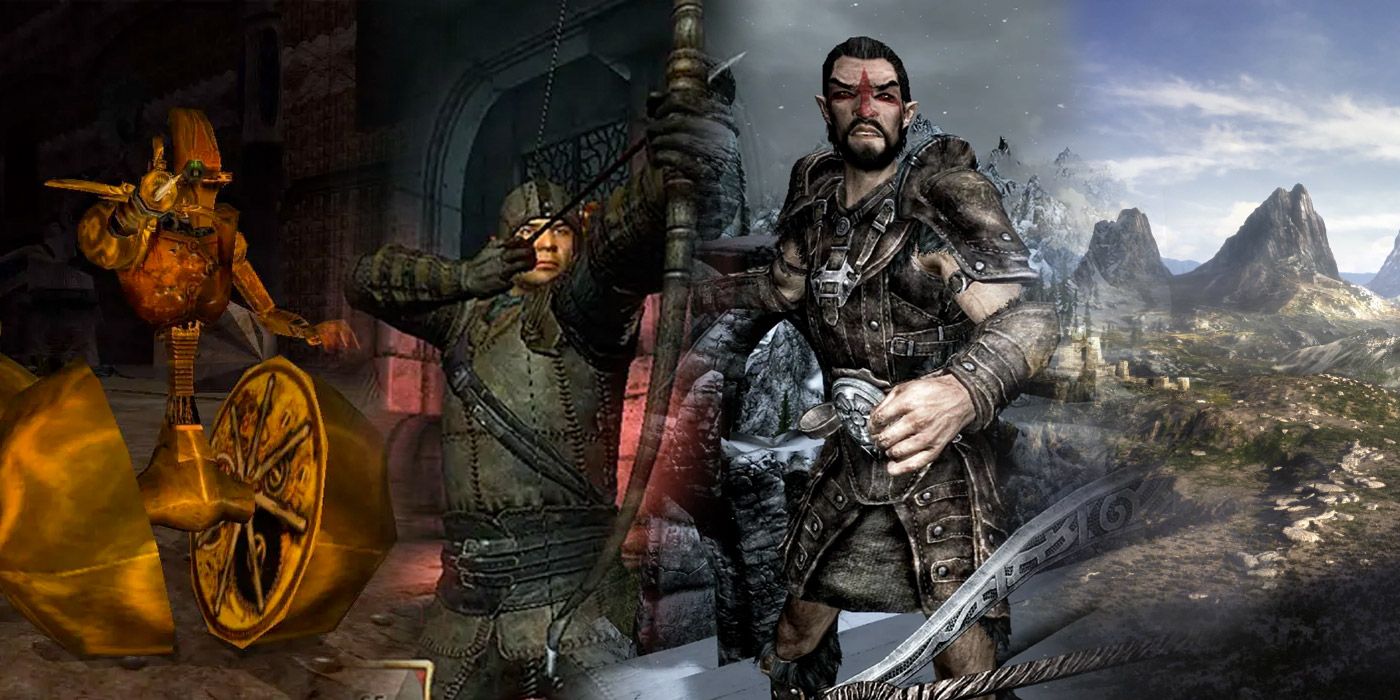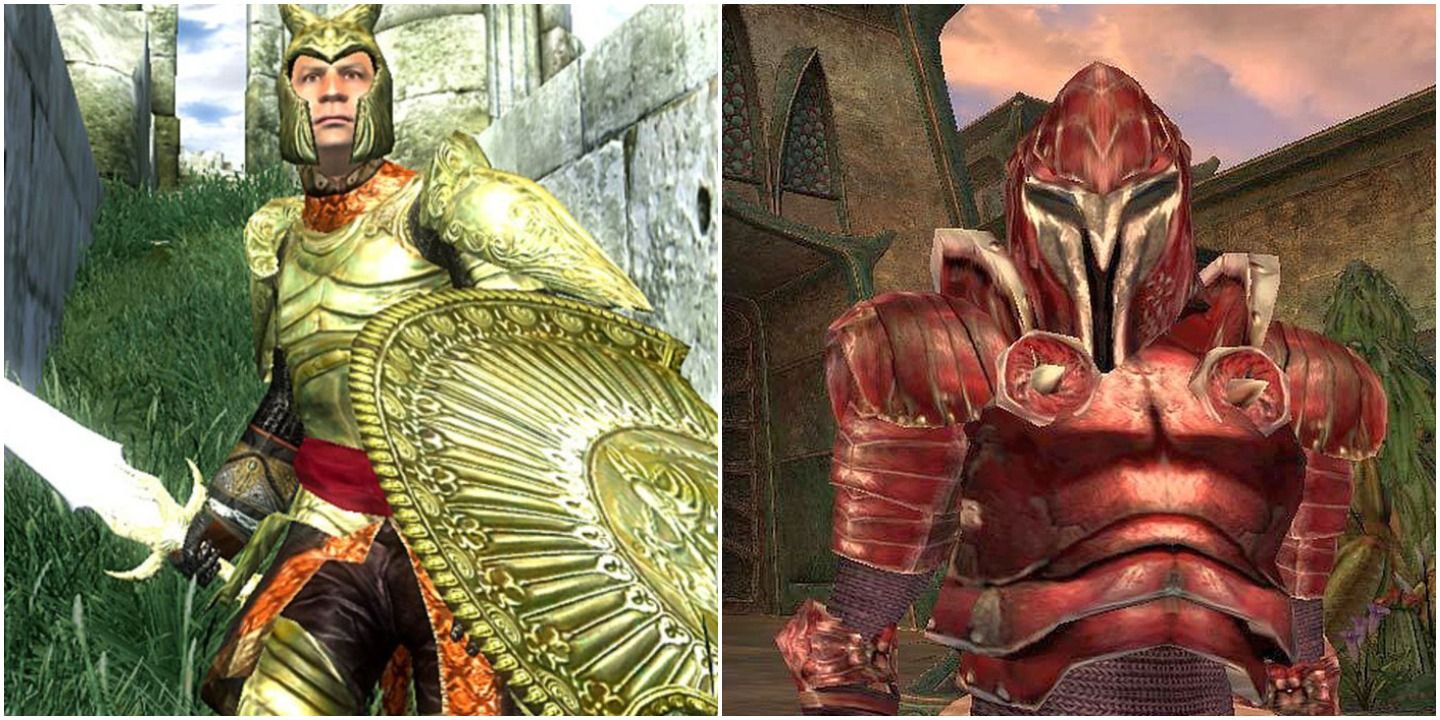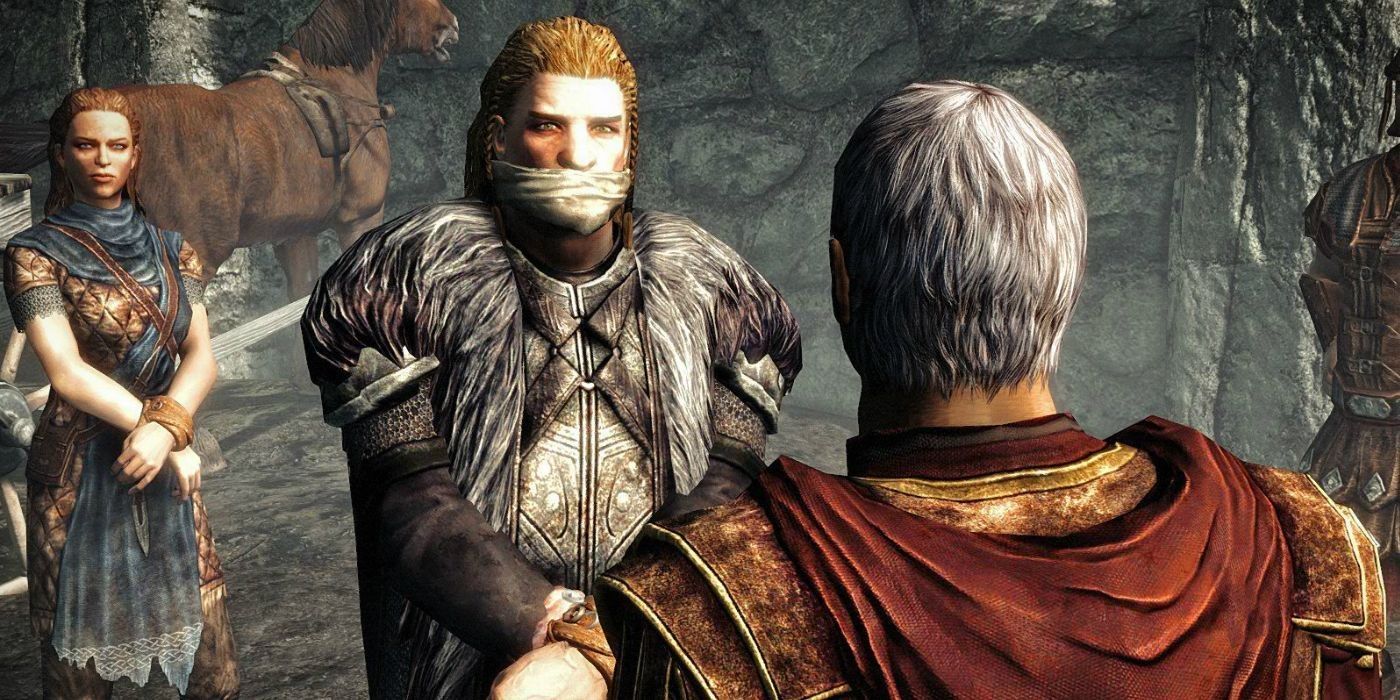Bethesda has released very little information about The Elder Scrolls 6 since the game’s initial announcement back in 2018. The announcement revealed nothing about the new game’s setting or story, and though exciting, it ultimately came as little surprise.
However, there’s one trend that has developed across the Elder Scrolls series that could be concerning for The Elder Scrolls 6. Here are some of the ways that pattern has unfolded and a few of the things Bethesda should avoid it in its upcoming game.
Morrowind Features That Didn't Make it Into Oblivion
There’s no question that The Elder Scrolls games have gotten simpler over the years. Some of the biggest differences can be seen when comparing the features in Morrowind and Oblivion. Though there are many differences, the common theme is simple: Morrowind forced the player to make far more choices and to specialize to a far greater degree. Joining one of the Great Houses of Morrowind, for example, locked off the others. In both Oblivion and later Skyrim, the player can join any faction in the land with no problem, even if their creeds are radically different.
In return for its greater difficulty, Morrowind had greater rewards for committing to certain skills. Unlike Oblivion and Skyrim, for example, Morrowind had no doors that couldn't be unlocked with a high enough skill, even ones that were essential to certain quests.
When it comes to RPG game design, accessibility should mean making the premise underlying mechanics transparent. Character skills, for example, might be more difficult to accumulate as in games like Morrowind, but the premise behind their accumulation should not be confusing. This makes sense for a lot of other aspects of the games as well. In questing, the player should find the task itself challenging, but part of the challenge should not be deciphering the confusingly worded quest text itself. The introduction of the quest marker in Oblivion to replace Morrowind’s quest directions is another example of ease of completion, not necessarily better transpareny.
It’s both straight forward and immersive to follow the instructions given by a Morrowind quest giver instead of aiming directly at a quest marker like Oblivion and Skyrim encourage. Indeed, many of the features that were simplified for Oblivion would begin to cause problems for The Elder Scrolls series.
Oblivion Features That Were Skipped Over in Skyrim
The Elder Scrolls games have increasingly taken "easiness" not just to mean transparency, but also that most tasks are, ultimately, simple. The jump between Oblivion and Skyrim most notably saw the removal of Elder Scrolls classes and the massive simplification of the skill and spell systems.
Not only is Skyrim’s combat simple, but even on the hardest difficulty in Skyrim, few tasks are particularly challenging. Special skills like lockpicking aren’t just easier to understand in Skyrim than Oblivion, but any kind of lock can, in theory, be unlocked by a very low-level character with enough lockpicks to spare. In fact, there’s very little a level one in Skyrim can’t do. Most interactions, whether they are combat, lockpicking, or something else, can be won in a war of attrition. This is a problem with Bethesda games after Oblivion that can be most clearly seen when other developers take on the studio’s IPs.
In Bethesda's Fallout 3, for example, speech checks worked using a percentage. The higher the player’s speech, the higher the chance of them succeeding the speech check. However, because of this, there was no reason not to reload the game until the speech check succeeded.
In Fallout: New Vegas, developed by Obsidian, a dialog check under any skill cannot be completed without sufficient points in that skill. Trying to get Easy Pete to hand over his dynamite to help Goodsprings with a 22 out of 25 in explosives will never work. Nonetheless, the feature still makes perfect sense – if anything, a value like 22/25 is easier for most people to understand than a percentage of probability.
The Elder Scrolls 6: Will There Be Even Less?
It’s hard to say what could be cut from Skyrim in the name of streamlining the Elder Scrolls series, but there are some strong candidates. Shouts will almost certainly be removed (although this would be fitting), and if the trend continues from Morrowind to Oblivion and Oblivion to Skyrim, players may see traditional skill progression taken out of the game entirely. If nothing else, it’s unlikely that certain aspects of The Elder Scrolls like spells will be made more complicated and engaging again after Skyrim’s success, and the removal of Shouts could make the game's magic less diverse.
The Elder Scrolls 6’s mechanics should be transparent but this should not be achieved by making the games even simpler. The consequences of this trend can already be seen in Skyrim, and spells in particular come cheap in The Elder Scrolls 5. Every character can cast a few spells. While in other RPGs players have to prioritize which skills they want to specialize in, in Skyrim players who don’t use spells are largely making a personal immersion choice – one of the starting spells is “Healing,” which makes it impractical for most players to be anything other than a mage combo.
If The Elder Scrolls 6 is going to surpass Skyrim, then the steps necessary to complete its challenges should be clear. However, that clarity should not mean that completing those steps – whether it be to gain a new skill, unlock a unique piece of dialog, or craft a new piece of Daedric armor – should not be an easy task.
The Elder Scrolls 6 is a long way out, and with Bethesda confirming that the studio’s new IP Starfield will release before the next Elder Scrolls, it is likely at least 5 more years away. It’s unclear which direction Bethesda will go with the game over a decade after Skyrim's release, but it’s unlikely that the studio will want to risk creating a game which appeals to a smaller audience than The Elder Scrolls 5. Hopefully, however, The Elder Scrolls 6 will not see more immersive and challenging RPG mechanics cut from the franchise.
The Elder Scrolls 6 is in development.




